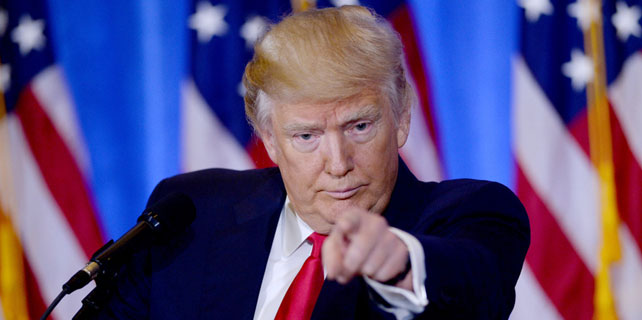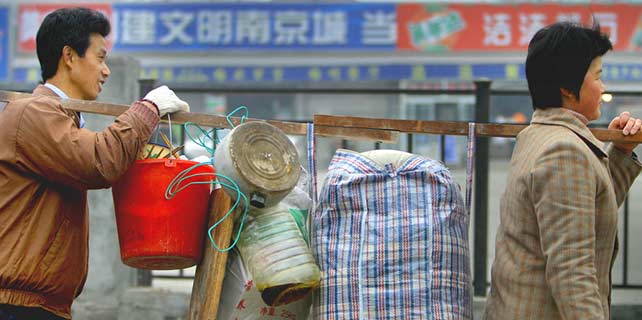Chinese innovation crucial to ending global diseases
That's why all of us at the foundation work hard with our partners every day to reduce the kind of inequity preventing the poor from fully enjoying the benefits of economic development and social progress. Sadly, today there are still too many people missing out. So this year's theme of the World Economic Forum Annual Meeting at Davos is particularly appropriate - and especially urgent - when it comes to the global health and development agenda.
We need to accelerate the pace of innovation in order to end poverty, hunger and disease by 2030
In just a short space of time, the world has made extraordinary progress at a pace unmatched in human history: Maternal deaths cut by nearly half, child mortality and malaria deaths cut by half, and extreme poverty cut by more than half.
Progress like this is why we can now set ourselves new goals, such as ending poverty, hunger and disease by 2030, which just a generation ago were thought to be unattainable. We know now what's possible with public support and political will. But reducing the numbers by half, great as that is, means that we are still only half way done.
So let's not kid ourselves. For all the amazing progress, we need to step up the pace of investment and innovation to make good on the promises we've made to the world's poorest and most marginalized people because many challenges – old and new – remain.
For instance, tuberculosis is still one of the world's top 10 causes of death, and the world's leading infectious killer. The polio virus has re-emerged in Nigeria. And the widespread outbreaks of Zika and Ebola exposed the world's inability to effectively detect, respond to, and prevent the spread of pandemics.
Pandemics are a growing global threat – and we are unprepared for them. As Bill Gates says, if anything is going to kill 10 million people in the coming decades, it is far more likely to be a highly infectious disease than a conventional war. We don't know what epidemic will come next, who it will affect or how long it will last. What we do know is that there will be one.
The good news is that we also know what we have to do make the world safer, healthier, and more equitable. And we know it is within our power to do it. We just need to rise to the challenge.
Responding to these challenges requires global collaboration and leadership, and continued investment in innovation and R&D. Innovation in science has the potential to mitigate threats as fast as they emerge but only if governments and the private sector continue to invest in health R&D. We need to bring governments, businesses, international organizations and civil society together to drive progress.
Gavi, The Vaccine Alliance, is a model for how this kind of co-operation can be achieved effectively – and produce stunning results. Since 2000, Gavi has supported 73 countries to immunize 500 million children, along the way preventing more than seven million deaths.
This success is why we are incredibly optimistic about a new initiative that we and our partners are launching at Davos, the Coalition for Epidemic Preparedness Innovations (CEPI). Vaccines are critical tools in fighting disease outbreaks, but traditional approaches to developing and deploying vaccines are often too slow to prevent emergencies. This new approach will accelerate vaccine research and development so that we can get ahead of epidemics.
We are really excited about the potential of a public-private partnership that pools funding and technical expertise. With CEPI, we're confident that we can solve market failures and overcome regulatory hurdles so that we can tackle the biggest threats to global health security. But it will only be successful if governments make sustained investments in R&D, and as citizens, we need to show our support for innovation that drives human progress.
China has an important role to play in fighting some of the biggest challenges in global health and development
We have some really big ambitions for the progress we can make on global health and development, which is great. But if we're going to get there, we need to speed up the innovation cycle, generate good ideas more quickly, and turn those ideas into products more efficiently.
To do all of this, the world needs China. Chinese innovation encompasses new applications for traditional medicines, advances in sequencing technology, and breakthroughs in vaccine R&D. Global health innovation requires full Chinese participation. That only stands to reason.
We can't afford to shut ourselves off from the best minds, the best ideas, the best approaches - no matter where in the world they come from. We don't want to leave any doors closed in solving these big problems. And if you're not actively involving a country as vast as China, that's leaving an awful lot of doors closed.
We know that one of President Xi's stated aspirations is to build an innovation-driven economy. When he and Madam Peng met with Bill and Melinda Gates in Seattle in September 2015, one of the main topics was their shared commitment to advancing R&D in global health and development. And during a trip to China in October 2015, I visited several R&D centers and companies and saw with my own eyes how life sciences, computer science and big data have been organically integrated.
China is now the world's second largest country in terms of R&D investment. It has a proven track record in tackling public health issues at scale such as malaria and polio, and has also shown clear potential for developing and manufacturing world-class, affordable drugs and health products.
One exceptional example is a Japanese encephalitis (JE) vaccine developed and manufactured in China through partnerships among China Biotech Corporation, PATH and our foundation. To date, more than 250 million doses of the vaccine have been distributed outside China. The price of the vaccine is only a fraction of that of similar products sold in developed markets, making it ideal for use in low-income countries and regions.
Last year, we launched the Global Health Drug Discovery Center in collaboration with Tsinghua University and Beijing Government, which is focused on addressing the health needs of developing countries by accelerating the discovery and development of innovative drugs at an affordable price. The reason why we chose China as the home for this important initiative is China's strong capacity for innovation and rich pool of talented scientists and technicians.
2017 marks the tenth year of the Gates Foundation's presence in China. Over the past decade, our programs have expanded from helping China address domestic health challenges in HIV/AIDS, Tuberculosis and tobacco control to also include supporting China in playing an increasingly important role in tackling global challenges. Underlying all these programs is our confidence in China's potential for promoting global health and development, and our job is help unlock such potential so the world can make good on our collective 2030 agenda.
The author is the Chief Executive Officer of Bill & Melinda Gates Foundation.






















